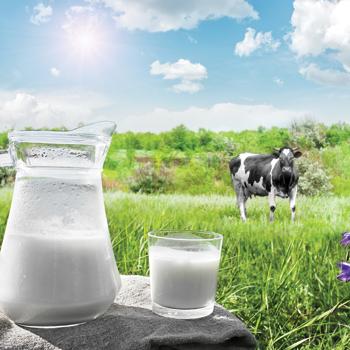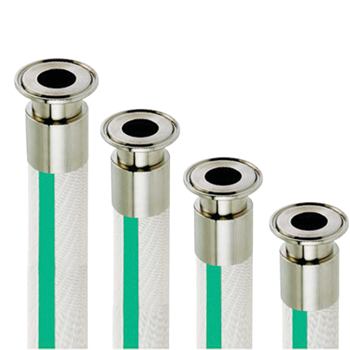กฎระเบียบด้านอาหารล่าสุดที่มีผลบังคับใช้ประกาศกระทรวงสาธารณสุข (ฉบับที่ 376) พ.ศ.2559 เรื่อง อาหารใหม่ (Novel Food)
โดย: สำนักอาหาร
สำนักงานคณะกรรมการอาหารและยา กระทรวงสาธารณสุข
Bureau of Food
Food and Drug Administration, Ministry of Public Health
จากนโยบาย “ประเทศไทย 4.0” ที่มุ่งเน้นการขับเคลื่อนเศรษฐกิจด้วยนวัตกรรม เปลี่ยนจากการผลิตสินค้าที่มีเหมือนกันทั่วโลกให้เป็นสินค้าเชิงนวัตกรรม เปลี่ยนภาคอุตสาหกรรมธรรมดาให้ใช้เทคโนโลยี ความคิดสร้างสรรค์ และนวัตกรรม และการบริการ เพื่อตอบสนองต่อพฤติกรรมการบริโภคและการดำเนินชีวิตที่เปลี่ยนแปลงไปของสังคม จึงมีการนำวัตถุที่ไม่มีประวัติใช้บริโภคเป็นอาหาร มาเป็นส่วนประกอบหรือส่วนผสมในอาหาร หรือจำหน่ายเป็นอาหารโดยตรง รวมทั้งมีการพัฒนาเทคโนโลยีการผลิตในกระบวนการผลิตอาหาร ซึ่งวัตถุหรืออาหารเหล่านั้นอาจไม่ปลอดภัยในการบริโภคหรืออาจก่อให้เกิดอันตรายต่อผู้บริโภคได้ ดังนั้น สำนักงานคณะกรรมการอาหารและยา ในฐานะหน่วยงานหลักในการกำกับดูแลความปลอดภัยอาหาร ภายใต้พระราชบัญญัติอาหาร พ.ศ.2522 จึงได้ออกประกาศกระทรวงสาธารณสุข (ฉบับที่ 376) พ.ศ.2559 เรื่อง อาหารใหม่ (Novel Food)(1) เพื่อการคุ้มครองสุขภาพของผู้บริโภคในเชิงรุก เช่นเดียวกันกับหลายประเทศที่มีข้อกำหนดสำหรับอาหารใหม่แล้ว เช่น Regulation (EC) No.258/97 of the European Parliament and of the Council of 27 January 1997 concerning novel foods and novel food ingredients ของสหภาพยุโรป(2) Food Standards Code 1.5.1 Novel Foods ของประเทศออสเตรเลีย นิวซีแลนด์(3)และข้อกำหนดสารที่ไม่เข้าข่ายในกลุ่ม GRAS (Generally Recognized As Safe) ภายใต้ Code of Federal Regulations Title 21 ของสหรัฐอเมริกา(4)เป็นต้น โดยมีหลักการที่สอดคล้องกัน กล่าวคือ อาหารใหม่ (Novel) ที่เข้าข่ายตามนิยามที่กำหนด จำเป็นต้องผ่านการประเมินความปลอดภัยและขออนุญาตจากหน่วยงานรัฐที่กำกับดูแลก่อน จึงจะสามารถนำไปใช้ในการผลิตหรือนำเข้าเพื่อจำหน่ายได้ โดยการประเมินความปลอดภัยนั้นอยู่บนหลักฐานวิชาการที่เชื่อถือได้และมีกระบวนการประเมินความปลอดภัยที่เป็นไปตามหลักการที่ยอมรับในระดับสากล
ดังนั้น เพื่อสร้างความเข้าใจและความตระหนักแก่ทั้งผู้ผลิต ผู้นำเข้า และผู้บริโภคของประเทศ ซึ่งประกาศกระทรวงสาธารณสุขว่าด้วยเรื่องดังกล่าว มีสาระสำคัญโดยสรุป ดังนี้
The “Thailand 4.0” policy focuses on an innovation-driven economy by switching from manufacturing products which are commonly produced around the world to innovative products. Traditional industries are being transformed by utilizing technology, employing creative and innovative thinking, and providing first-class service to respond to changing consumer behaviors and lifestyles. In the food and beverage industry, substances which have never had a history of being consumed as food are now being used as ingredients or constituents of food, or being sold directly as food. There have also been new developments in food processing technology. These new substances or foods as well as foods manufactured with new technologies may not be safe to consume and may harm consumers. Therefore, the Food and Drug Administration (Thai FDA) as the competent authority responsible for food safety oversight under the Food Act of B.E.2522 (1979) has issued Notification of the Ministry of Public Health (No.376) B.E.2559 (2016) Re: Novel Food(1) in order to proactively safeguard consumer health in line with many countries who already have regulations regarding novel foods. For example, the European Union has implemented Regulation (EC) No.258/97 of the European Parliament and of the Council of 27 January 1997 concerning novel foods and novel food ingredients(2); Australia and New Zealand follow the Food Standards Code 1.5.1 Novel Foods(3); and the United States distinguishes between those substances falling outside the scope of GRAS (Generally Recognized As Safe) under Code of Federal Regulations Title 21(4).
All of these regulations have similar principles especially that novel foods as prescribed by the definition shall be evaluated for a safety assessment and receive approval from the food authority prior to be consumed or used for food production or imported for distribution. Safety assessments must be based on reliable research evidence and procedures following internationally accepted principles.








